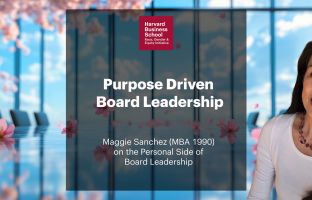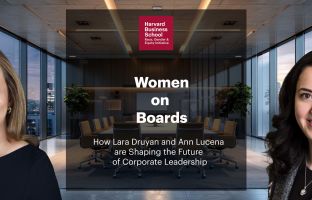During a business meeting full of men, Roberta Sydney was not shy about setting them straight, especially when they assumed she was there to get coffee and take notes. It was her name on the door of the real estate development company, she firmly explained.
“There are always opportunities to be miscast when you look different than people expect,” she said.
Her directness, combined with compassion and a willingness to work on learning skills such as board leadership, has helped her succeed in not one, but two male-dominated industries: financial services and real estate/construction.
A fellow board member recalls a touchy situation several years ago with an angst-ridden company founder in a conference room the day before Thanksgiving. Sydney was then-chair of the board of the Colorado construction company HEI Civil, brought in to manage turning the private company over to younger generations, said fellow board member Michael Mangum, partner at FMI Corp. in Raleigh.
Mangum watched with admiration as Sydney proceeded with “patience and persistence, in a tender-hearted way” to help the founder remember why letting go was the right course.
Sydney had a “firm hand on the rudder of the board and led us through some pretty choppy waters,” Mangum said. “She had a heightened level of emotional intelligence.”
From finance to real estate and construction
Early in Sydney’s career, she worked in financial services and bumped up against glass ceilings. “I wasn’t being given the opportunity to really ascend. Every time I said, ‘What’s next?’ they said, ‘You have to be patient,’ because there was only room for one or two women.”
Then came a challenge that pushed Sydney to found her own company. While working in financial services, she had to moonlight as head of her father’s construction firm when he faced the dual challenges of a bad car accident and Parkinson’s Disease. Sydney’s employer wouldn’t allow her to work part-time to help her father and juggle the additional responsibilities that came with supporting him.
She knew she needed to take charge of her next chapter. Leveraging an MIT master’s degree in real estate development, she left her job, closed her father’s construction company, and started a development company, Sydney Associates Inc.
Despite the dearth of women in her industry, she believes that being a woman has helped her at times — including when she won curiosity and respect while seeking local government approvals from zoning boards. Sydney, now 65, joked that she hopes someday, there will be enough women in the real estate development industry to produce a line for the ladies’ room[TL1].
Networking key to find board seats
Starting with her own company board, Sydney began serving on boards in 1999 and has tallied about 10 boards since. These days, board service is her only work.
About 80 percent to 90 percent of board slots are filled through networking, she estimated, so the process is more opaque than a job search. Connecting with people she knew helped her access board opportunities.
“Unless you’re under a rock, you know people. You need to look at your own network first,” she said.
Now she sees the process from the other side, having served as a chair looking for board members. One search for a pre-IPO company drew 700 submittals for four board slots. Only 190 made it past the first quick look and then 56 warranted a conversation.
“As an aspiring board director, you need to think about, ‘what is the board looking for and how can you contribute to the team,’” Sydney advised. Although she looks for diversity, “if they don’t have the skill, they don’t make the list. Skills and abilities come first.”
Analysis, guiding others key to board service
Sydney traces her interest in boards all the way back to her middle-school studies of the Talmud in a Hebrew day school, which prepared her for Harvard Business School case studies. That in turn prepared her for the analysis and deep thought required of a board member.
“The most important thing is, are you asking the right question? Are you solving the right problem? Are you addressing the right issue?” Sydney said. “So many people [try] to solve for the symptoms, or they rush to [a] solution.”
In the end, board service is a way to apply what she’s good at, Sydney said: “I enjoy most seeing the light bulb turn on and seeing that I’ve contributed by helping them solve the problem. It’s about helping to guide, shape, and challenge others so they can do their best work.”
[TL1]“I’m hoping some day when I go to a conference, I’ll have to wait for the ladies’ room.”







